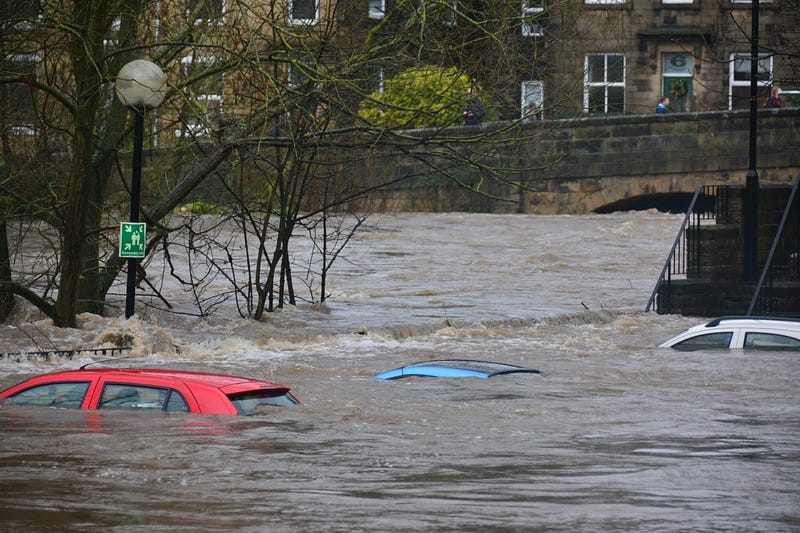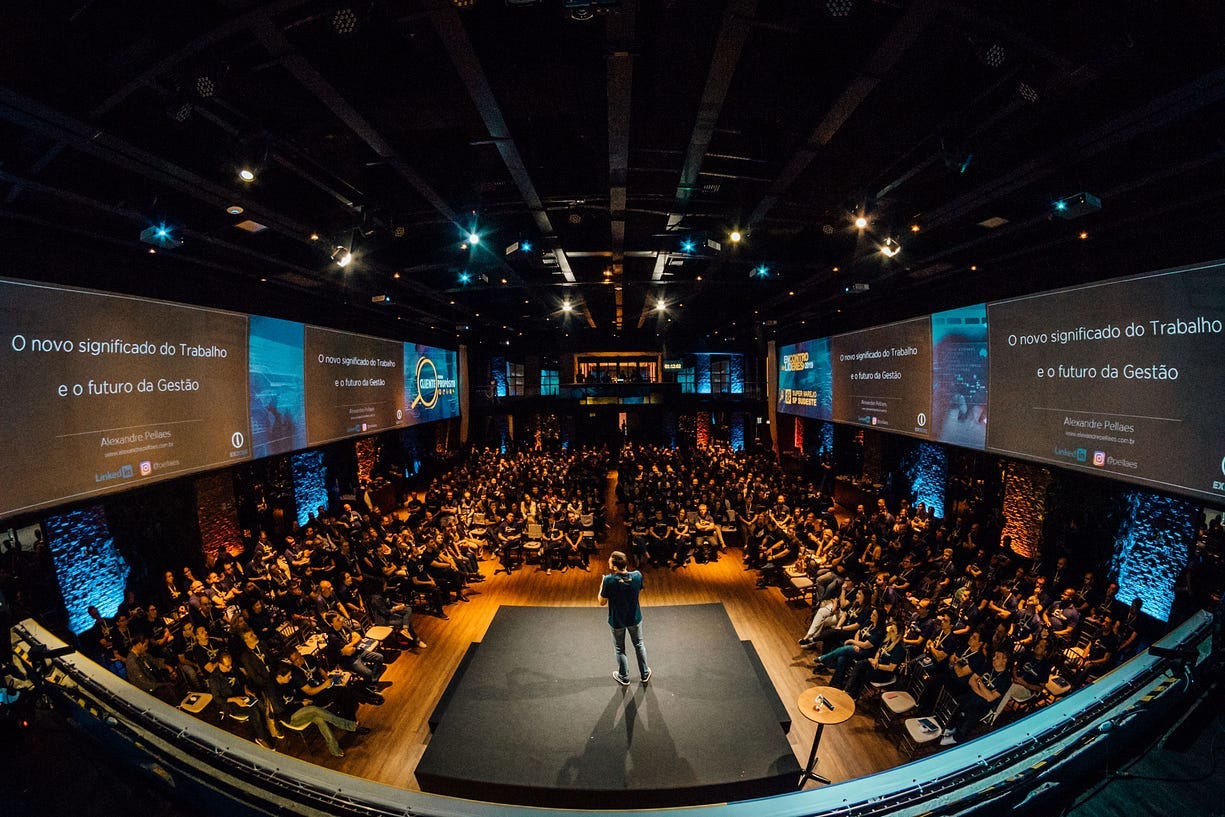Field Of Community Dreams
Building a community, especially in games, is not just about hitting “create”. Here are a few questions you should answer beforehand.
Recently I’d been invited to a group on Facebook that was supposed to be filled with games industry individuals. I get invited to these groups every so often through friends or friends of friends, and I rarely join them. This is mostly because A)I look at these social media channels on an almost-daily basis for my normal work in games so I have limited bandwidth and B)I’m really terrible at keeping up with multiple personal groups at once.
But this group was different — forged only a couple days ago, it seemed to already have a high volume of posts and a decent number of members. And so, for probably only the fifth time since I’ve been on Facebook, I actually joined a community group and decided to see what would happen, hoping for a healthy and vibrant community.

All of these issues could have easily been avoided if a solid foundation for the community was built and developed before the community was allowed to grow. In the movie “Field of Dreams”, all that had to be done was to have the will to create the titular baseball field. “If you build it, they will come,” said the trademark line of the movie that ended up being a classic as far as community building, among other reasons. But in today’s fast-moving, aggressively viral internet, filled with the challenges of having to deal with community issues on the fly, it’s not enough. Here are a few things to consider before building a community, especially in the games space.

Often people want to start with just creating their communities rather than thinking about what they want to do with it. I refer to this as the “community scope”, and it’s the basis from which all your other decisions in building a community should flow from. Are you seeking to have a place where people can connect with each other over a shared interest? Provide a safe haven where opinions can be debated without fear of reprisal? Set up a place where people can just get together over whatever game-related news, current releases, or internet memes are all the rage? Whatever your scope, you should set up your goals and what wild success looks like first — otherwise you’ll always be playing catchup having to think about this later. A community scope can always be altered — but it can only be started once. Put yourself ahead of the game by doing it before you open your doors.

Examples include things such as “my community will ensure equality of representation for all, including those who are marginalized”, “the community will provide an information resource for news that is sourced and vetted”, “we will connect gamers in a shared space that is welcoming and kind”. All of these are guiding principles that allow you to have some agency in ensuring that nothing goes awry in your community as it grows.
Speaking of awry, that feeds into the next question you need to answer.

This is the question that is most likely to actually be answered by many fledgling communities because it most commonly involves rules, regulations, and the enforcement of those. Most anyone who’s had a bad experience in a game that is played with other people knows the necessity of ensuring that there are rules in place to ensure a community doesn’t fall apart. Whether you decide to take a heavier hand and ensure that people are not being destructive to (and therefore counter to) your community or decide to take a lighter touch at first to allow the community to shape enforcement through a bit of self-policing, you have to figure out what kind of ways in which your principles will be adhered to.
Some of this also takes the form of who you choose to surround yourself with when the time comes to be able to get help or assistance with ensuring your principles get maintained, and how you recruit those individuals into assisting you with your community. If you have an idea of how your principles are to be enforced, you also have an idea of who will best be able to do so.

What will you do to grow and engage with your community?
Sometimes, as with the group I mentioned at the start of my article, a community grows far beyond its means too quickly, and those running a community are needing to run to catch up to it or to re-evaluate what’s happening with it, when in fact this is an avoidable problem. By thinking beforehand how you plan on both growing the community and also engaging with it, you are making plans about how to not only cultivate a larger presence but also the pace at which it does so. Want to keep your community small and intimate? There are ways to encourage your community to grow gradually and slowly. Want to eventually have one of the largest communities for the game or games that you’re building for? There are ways to grow at a steady pace and gain a bit more exposure to attract more community members. Either way, you’re thinking about how your community is going to expand, rather than having to play a reactive role when it does.

Engagement, of course, is a part of this, and we community managers typically define engagement as the ability and methodology of us as shepherds of a community to be able to take a direct hand in working with it. This can take a variety of forms, especially in the games industry where players value engagement with those who are on the development team or work for a company. Since you’ve likely built your scope, principles, and enforcement of your community before arriving at this point, you’ll have a better idea of what form that engagement might take. Perhaps you’ll want to prioritize information, updates, and announcements, ensuring a more educated community. Or maybe you would rather be in on the ground level, wading into community discussions, exuding a more personable, accessible feeling that builds confidence in you as a community manager. Perhaps you want to plan your activities or events around either strategy. The possibilities are seemingly endless, but the important thing is that your engagement helps feed into your community-building strategy.
Regardless of how you choose to engage your community, there is one required method by which you are obligated to do so, and which turns out to be the last item to layer onto your community foundation.

Feedback and the method of two-way communication between you and the community for which you are responsible is the last component to layer on top of everything else. If you have a scope, principles, maintenance of those principles, and growth/engagement strategies, establishing a method by which you take community feedback to tweak all of those is an essential part of ensuring longevity in that community. In many situations, once we’ve built and begun running a community, especially in games, there can be times when as stewards of that community we can only look at it through the lens of someone who manages more than someone who participates. Participants in your community, those that are in it day-to-day without having to be responsible for running it, provide a unique viewpoint with which to glean the critical feedback by which to improve things.
This is an ongoing thing, which is why we in the community management business call it a “feedback loop”. We ask for feedback from the community, get it from them, consider it and make decisions, and then provide our changes or adjustments, providing feedback to the community about them by outlining our reasoning for doing so. While ultimately you as the community manager are the arbiter of any decisions made about what you do with what you’re building, having a healthy feedback loop, and ensuring that your community feels heard builds a sense of loyalty, credibility, and pride from your community members. Because not every community can be run by a single person in perpetuity, empowering your community members to advocate for and help maintain what you’ve built is very powerful — and it has the added bonus of freeing up your time for other things you could be doing to build your community.





